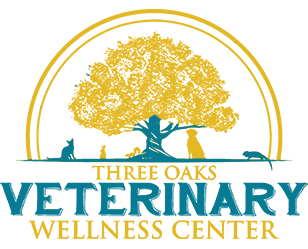Veterinary Care for Exotic Pets
We Treat Exotic Pets!
Three Oaks Veterinary Wellness Center is proud to be one of the only veterinarians in the Brooksville and the greater Hernando County that has the expertise to treat exotic pets. We treat:
- Birds
- Ferrets and other small mammals such as chinchillas, hedgehogs, guinea pigs, rats, mice, gerbils and hamsters
Just like dogs and cats, your feathered, scaled and small furry pet needs annual veterinary care, balanced nutrition, human interaction, and appropriate management of his/her environment.



Annual Exams are Important for Exotic Pets
An annual exam gives us the opportunity to ensure that your pet is healthy and have baseline records and baseline blood values for future reference in the event that your pet is ever sick. Depending upon the type of pet you have, we will discuss vaccination options with you. An annual exam gives you one-on-one time with us so we can answer all of your health, behavior questions and nutrition questions.
Exotic Pet Care Includes:
- Annual wellness physical examinations
- Professional bird wing-clipping, beak trimming and nail trimming
- DNA sexting
- Dental Care
- Microchipping
- Diagnostic testing such as x-rays, blood tests, skin scrapings, and biopsy of growths
- Surgeries for growth removal, dental disease, fractures, and internal problems
- Dietary supplements tailored to the needs of your pet
- Nutritional counseling
- Behavioral counseling

Exotic Pet Emergencies
Birds and other exotic pets are very good at hiding their signs of illness. An annual checkup is a good way for us to help you screen for any heath issues your exotic pet may have. Annual vaccines are also important to keep current.
If your bird or other exotic pet exhibits signs of illness, please call us right away; it probably is an emergency situation for your pet. Learn to recognize a sick pet—it is common for the first signs go unnoticed. Usually the first signs include:
Birds
- Changes in behavior, such as decreased activity level or decreased vocalization
- Decreased appetite – Remember that birds will pretend that they are eating, so don’t be fooled
- Diarrhea or persistent abnormal droppings
- Too much fluid in the droppings (polyuria)
- Fluffed
- Sitting on the cage bottom
- Coughing, sneezing, abnormal breathing sounds
- Tail bobbing
- Weight loss
- Regurgitating, vomiting
- Change in water intake
- Weakness
Small Mammals
- Lack Of Appetite
- Difficulty Breathing
- Behavioral Changes
- Weight Loss
- Fur Changes
- Vomiting
- Lethargy
- Change in urination/defication, including changes in the color, amount or texture of your pet’s waste, excessive urination or lack of feces or urine.


